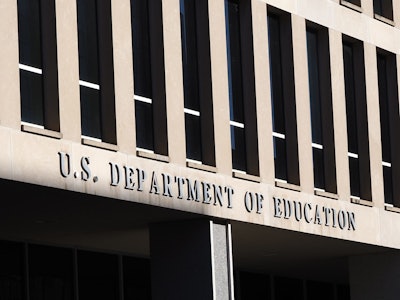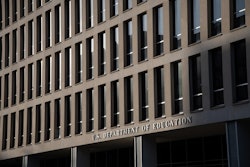
A federal judge in New Hampshire delivered a significant legal victory Thursday for proponents of diversity, equity, and inclusion (DEI) programs in education by granting a preliminary injunction against the U.S. Department of Education's controversial February "Dear Colleague" letter that critics had denounced as an unprecedented attempt to restrict DEI initiatives nationwide.
The ruling temporarily blocks the Education Department from enforcing its February 14, 2025, directive against the plaintiffs, their members, and affiliated organizations while litigation continues. The court determined the directive potentially contradicts established legal protections for academic freedom and may violate constitutional rights by imposing vague restrictions on curriculum and programming.
The February directive had sent shockwaves through higher education institutions across the country, with many administrators and faculty expressing concern that their diversity programs could trigger federal funding cutoffs. According to court documents, some educators reported feeling targeted by what they characterized as a "witch hunt" that put their jobs and teaching credentials at risk.
"Today's ruling allows educators and schools to continue to be guided by what's best for students, not by the threat of illegal restrictions and punishment," said National Education Association President Becky Pringle in a statement following the decision. She further criticized the directive as part of broader "politically motivated attacks" designed to "stifle speech and erase critical lessons" in public education.
The coalition of plaintiffs who filed the lawsuit on March 5 includes the National Education Association (NEA), NEA-New Hampshire, the American Civil Liberties Union (ACLU), ACLU of New Hampshire, ACLU of Massachusetts, and the Center for Black Educator Development.
Sharif El-Mekki, CEO and founder of the Center for Black Educator Development, emphasized the significance of the ruling beyond its immediate legal implications. "While this interim agreement does not confirm the Department's motives, we believe it should mark the beginning of a permanent withdrawal from the assault on teaching and learning," he said. "The Department's attempt to punish schools for acknowledging diversity, equity and inclusion is not only unconstitutional, but it's also extremely dangerous -- and functions as a direct misalignment with what we know to be just and future forward."
Education legal experts note that the case represents a critical battleground in the ongoing national debate about how issues of race, identity, and structural inequality should be addressed in educational settings. The preliminary injunction suggests the court found merit in the plaintiffs' arguments that the Education Department overstepped its authority and potentially violated First Amendment protections.
Sarah Hinger, deputy director of the ACLU Racial Justice Program, called the ruling "a victory for students, educators, and the fundamental principles of academic freedom," adding that "every student deserves an education that reflects the full diversity of our society, free from political interference."
The lawsuit challenges the directive on multiple legal grounds, including violations of due process and First Amendment rights, limitations on academic freedom, and exceeding the department's legal mandate by dictating curriculum content. The plaintiffs argue that the directive created a chilling effect on legitimate educational activities while imposing vague standards that left educators uncertain about compliance requirements.
Gilles Bissonnette, legal director of the ACLU of New Hampshire, emphasized the importance of the ruling for educational inclusivity. "The court's ruling today is a victory for academic freedom, the free speech rights of educators, and for New Hampshire students who have a right to an inclusive education free from censorship," he said. "Every student, both in the Granite State and across the country, deserves to feel seen, heard, and connected in school - and that can't happen when classroom censorship laws and policies are allowed to stand."
The injunction comes at a time when many colleges and universities have been reassessing their diversity initiatives amid increased public scrutiny and policy debates. Higher education institutions have expressed particular concern about maintaining both compliance with federal regulations and their commitments to creating inclusive learning environments.
The Department of Education has not issued a public response to the court's decision. The case will now proceed to further litigation as the court considers whether to permanently block the directive.















